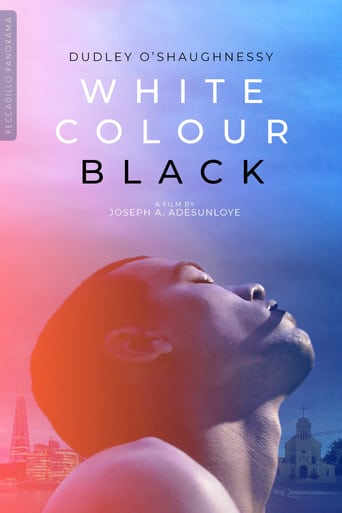euroGary
Before the showing of 'White Colour Black' at the 2016 London Film Festival, director/writer Joseph a Adesunloye introduced by name no fewer than two dozen members of his cast and crew. While the job of the continuity woman is undoubtedly important - some viewers love to spot mistakes - should a cinema full of people really be made to applaud her?Anyway... Leke is a successful photographer living in London. His existence is one of premieres, designer drug snorting and casual sex. He ignores the telephone messages from his Senegalese uncle concerning his father's illness - until one such message brings news of his father's death, and Leke has to return to his father's village for the burial.Dudley O'Shaughnessy is undoubtedly striking-looking. But when you are the lead actor in a production, a certain amount of acting talent is required and in this O'Shaughnessy is, I feel, lacking. In a vast number of scenes he delivers his lines in a one-note monotone, and his face is also curiously emotionless - a fact not helped by his habit of leaving his mouth half-open, giving him a definitely gormless look. (However, I must admit he does well in a scene where Leke breaks down at this father's grave.) Showing him up are Yrsa Daley-Ward, who creates two distinct personalities in her dual roles as sisters Badewa and Esther; and Wale Ojo as Leke's disappointed uncle.Very late in the film there is a bit of an info-dump, concerning Leke's reluctance to visit his sick father and his career before photography, as if the film-makers suddenly realised they had left out some vital plot points (in which case, they also forgot to reveal the contents of the letter Badewa sends to Esther). But the story is interesting and Adesunloye makes good use of the Senegalese locations.I could, however, have done with fewer shots of Leke spitting. Who does he think he is, a footballer?

